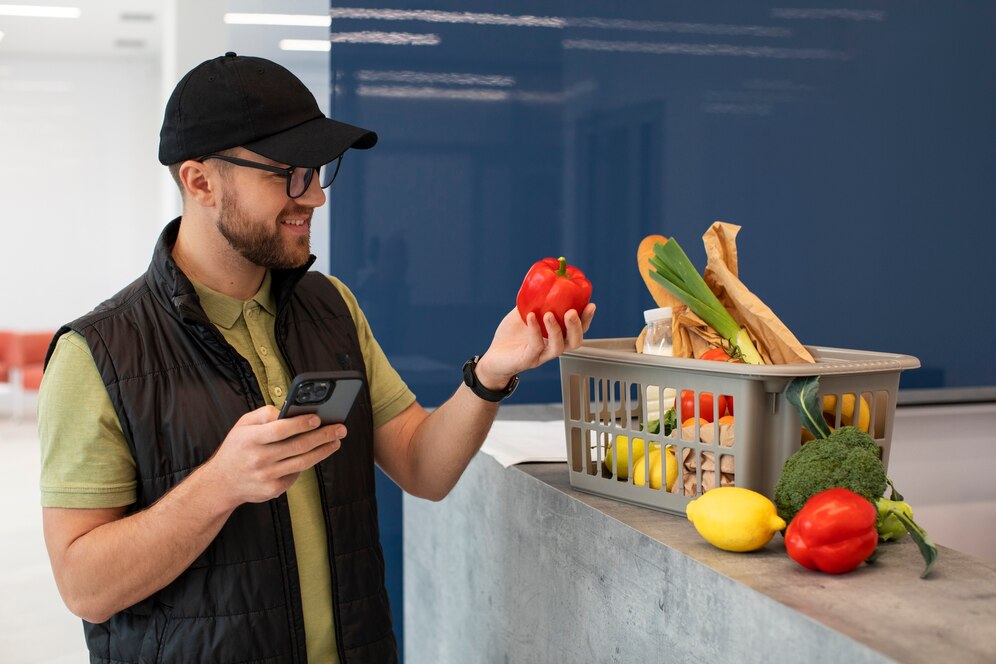The Importance of Food Safety Compliance
In the food industry, maintaining high standards of safety and hygiene is not just a regulatory requirement; it is essential for ensuring public health. Food safety compliance protects consumers from foodborne illnesses and helps businesses avoid hefty fines and reputational damage. With stringent regulations in place, it is crucial for food businesses to stay ahead of the game.
Food safety audits serve as a vital tool for assessing compliance with these regulations. They help identify potential hazards and areas for improvement, ensuring that businesses can operate safely and efficiently. However, preparing for these audits can be daunting, particularly without the right tools in place.
Understanding Food Safety Audits
Food safety audits are comprehensive evaluations of a food business’s practices and procedures. They assess everything from food handling and storage to employee hygiene and cleanliness of the premises. These audits can be conducted by internal teams or external bodies, and the findings can lead to significant consequences if issues are identified.
In Australia, food safety regulations are enforced at both state and federal levels, meaning businesses must navigate a complex landscape of compliance requirements. This complexity makes it all the more important to have a robust system in place for managing food safety protocols. Regular training for staff on hygiene practices and the importance of compliance can also play a pivotal role in fostering a culture of safety within the organisation. By empowering employees with knowledge, businesses can significantly reduce the risk of non-compliance and enhance their operational efficiency.
Consequences of Non-Compliance
The repercussions of failing a food safety audit can be severe. Businesses may face fines, closure orders, or even legal action. Beyond the immediate financial implications, there is also the risk of losing customer trust and damaging the brand’s reputation. In a competitive market, these factors can be devastating.
Moreover, non-compliance can lead to foodborne illnesses, which can have catastrophic effects on consumers and businesses alike. The responsibility to protect public health lies with food businesses, making compliance not just a legal obligation but a moral one as well. The impact of foodborne illnesses extends beyond individual cases, as outbreaks can lead to widespread panic and a decline in consumer confidence in the food supply. This can result in a significant downturn in sales, as customers may choose to avoid establishments associated with health scares. Therefore, investing in food safety compliance is not merely about adhering to the law; it is a proactive measure to safeguard both public health and the longevity of the business itself.
The Role of Food Safety Audit Software
In this digital age, technology plays a pivotal role in streamlining operations and enhancing compliance. Food safety audit software has emerged as a powerful tool for businesses looking to simplify their audit processes and ensure compliance with regulations.
This software provides a centralised platform for managing food safety protocols, documentation, and audit preparation. By leveraging technology, businesses can reduce the risk of non-compliance, improve efficiency, and ultimately protect their bottom line.
Streamlining Documentation and Record Keeping
One of the most significant advantages of food safety audit software is its ability to streamline documentation and record-keeping processes. Traditionally, businesses relied on paper-based systems, which can be cumbersome and prone to errors. In contrast, digital solutions allow for easy storage, retrieval, and management of critical documents.
With food safety audit software, businesses can maintain accurate records of food safety practices, employee training, and equipment maintenance. This level of organisation not only simplifies the audit process but also ensures that businesses can provide evidence of compliance when required.
Real-Time Monitoring and Alerts
Another key feature of food safety audit software is the capability for real-time monitoring and alerts. This functionality allows businesses to track critical control points, such as temperature and humidity levels, ensuring that they remain within safe limits.
In the event of a deviation, the software can send instant alerts to relevant personnel, enabling them to take corrective action before a minor issue escalates into a significant problem. This proactive approach not only enhances food safety but also minimises the risk of non-compliance during audits.

Preparing for Your Next Inspection
Preparation is crucial when it comes to food safety audits. The more organised and proactive a business is, the smoother the audit process will be. Food safety audit software can play a vital role in this preparation, providing tools and resources to ensure that everything is in order.
By using the software to conduct internal audits, businesses can identify potential issues before the official inspection. This practice allows for timely corrective actions and ensures that all necessary documentation is readily available.
Conducting Internal Audits
Internal audits are an essential part of preparing for external inspections. Food safety audit software can facilitate these audits by providing checklists, templates, and reporting tools. Businesses can customise these resources to fit their specific needs, ensuring that all relevant areas are covered.
By conducting regular internal audits, businesses can create a culture of continuous improvement. This proactive approach not only helps in achieving compliance but also fosters a commitment to food safety among employees.
Training and Employee Engagement
Employee training is a critical component of food safety compliance. Food safety audit software often includes training modules that can help staff understand their roles and responsibilities in maintaining food safety standards. Engaging employees in the process not only enhances compliance but also empowers them to take ownership of food safety practices.
Regular training sessions, coupled with the use of audit software, can ensure that all employees are up-to-date with the latest regulations and best practices. This level of engagement can significantly reduce the risk of non-compliance during inspections.
Choosing the Right Food Safety Audit Software
With numerous options available in the market, selecting the right food safety audit software can be a daunting task. Businesses should consider several factors to ensure they choose a solution that meets their specific needs.
Key considerations include the software’s features, ease of use, customer support, and scalability. A user-friendly interface is essential, as it ensures that all staff can easily navigate the system. Furthermore, robust customer support can help businesses resolve any issues promptly, minimising disruptions to operations.
Features to Look For
When evaluating food safety audit software, businesses should look for features that align with their operational needs. Essential features may include customizable checklists, real-time monitoring capabilities, reporting tools, and mobile accessibility.
Additionally, consider whether the software integrates with existing systems, such as inventory management or point-of-sale systems. This integration can streamline processes and reduce the risk of errors. Visit https://skattabrain.com/the-ultimate-guide-to-restaurant-food-safety-software-for-australian-operators/ to get more about the ultimate guide to restaurant food safety software for australian operators.
Cost Considerations
While cost is an important factor, it should not be the sole consideration when choosing food safety audit software. Investing in a quality solution can save businesses money in the long run by reducing the risk of fines and improving operational efficiency.
It is advisable to request demos or trials from software providers to assess their offerings before making a decision. This hands-on experience can provide valuable insights into how the software will fit into the business’s existing processes.

Conclusion: A Proactive Approach to Food Safety
In today’s regulatory environment, food safety compliance is more critical than ever. Businesses must take a proactive approach to ensure they meet all requirements and protect their customers. Food safety audit software provides an invaluable resource for streamlining processes, enhancing compliance, and ultimately avoiding fines.
By investing in the right tools and fostering a culture of food safety, businesses can navigate inspections with confidence. The benefits of implementing food safety audit software far outweigh the initial costs, making it a wise investment for any food business.
In the end, prioritising food safety is not just about compliance; it is about safeguarding public health and building a reputation for excellence in the industry. Embracing technology and adopting a proactive approach will set businesses on the path to success in the competitive food landscape.

